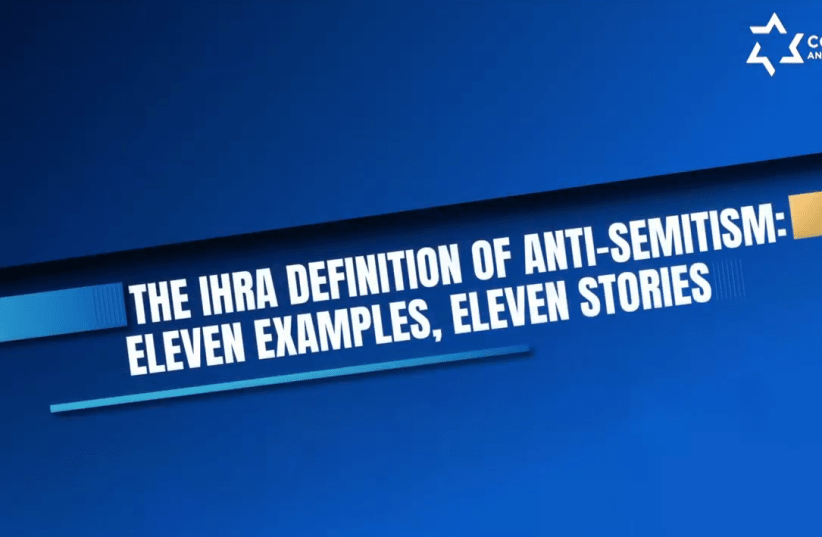On Wednesday, September 16, the Combat Anti-Semitism Movement hosted a live event on The Jerusalem Post website on modern antisemitism. The broadcast focused on 11 events that met the official definition of antisemitism as defined by the International Holocaust Remembrance Alliance (IHRA), a definition that has been accepted by 34 countries.Representatives of Jewish communities around the world recounted antisemitic incidents that they had experienced, and discussed the impact they had on their lives.Jonathan Morales, an off-duty US Customs and Border Patrol agent, was attending synagogue services at the Chabad of Poway synagogue in Poway, California, in April 2019, when a gunman entered the synagogue, killing one worshiper and wounding three others. Morales recounted the shooting and his actions in firing at the shooter.
“People are still shaken, hurt, and upset over the loss of life and the injuries sustained,” he said.A Holocaust survivor in New Jersey, who spoke to a student group about the Holocaust, reported that neo-Nazis responding to his remarks claimed that the Holocaust was a hoax.The event featured five of the world’s foremost authorities on the IHRA definition, including ambassador Michaela Küchler (chairwoman of IHRA), Elan S. Carr, (US special envoy for monitoring and combating antisemitism), Dr. Felix Klein, (Federal commissioner for Jewish life in Germany and the fight against antisemitism), Lord Eric Pickles, (the United Kingdom special envoy for post-Holocaust issues) and Ahmed Shaheed, (UN special rapporteur on freedom of religion or belief).Carr reported that in 2019, there was a record number of antisemitic incidents in the United States and that the overall number is rising globally. Carr noted the importance of having a formal definition of antisemitism, saying, “You have to understand and define the enemy, and an objective definition allows us to be on the same page.”Shaheed noted that “antisemitism is increasing exponentially as we speak.”Pickles said it was “a matter of pride” that the UK was the first country to adopt the IHRA definition. He explained, “We know from surveys that maybe 30% of the [UK] population... believe some of the tropes about Jews controlling the press or about Jews having a lot of money.” He added, “We really need to bear down on this antisemitism. That is why the IHRA definition is so important, because it deals with the modern nature of antisemitism.”Küchler warned, “Antisemitism has arrived in the mainstream of our societies.... It affects us all, and it requires each and every single one of us to combat it.”Klein said that “the IHRA definition is an essential tool in the fight” against online antisemitism. He outlined the legislation in Germany which targets online hate, explaining, “The IHRA definition helps in the diagnosis, it helps police forces to identify antisemitism... and it helps those who work for these platforms.”Redefining antisemitism: Eleven Examples, Eleven Stories - watch
Combat Anti-Semitism Movement hosts live event on antisemitism
